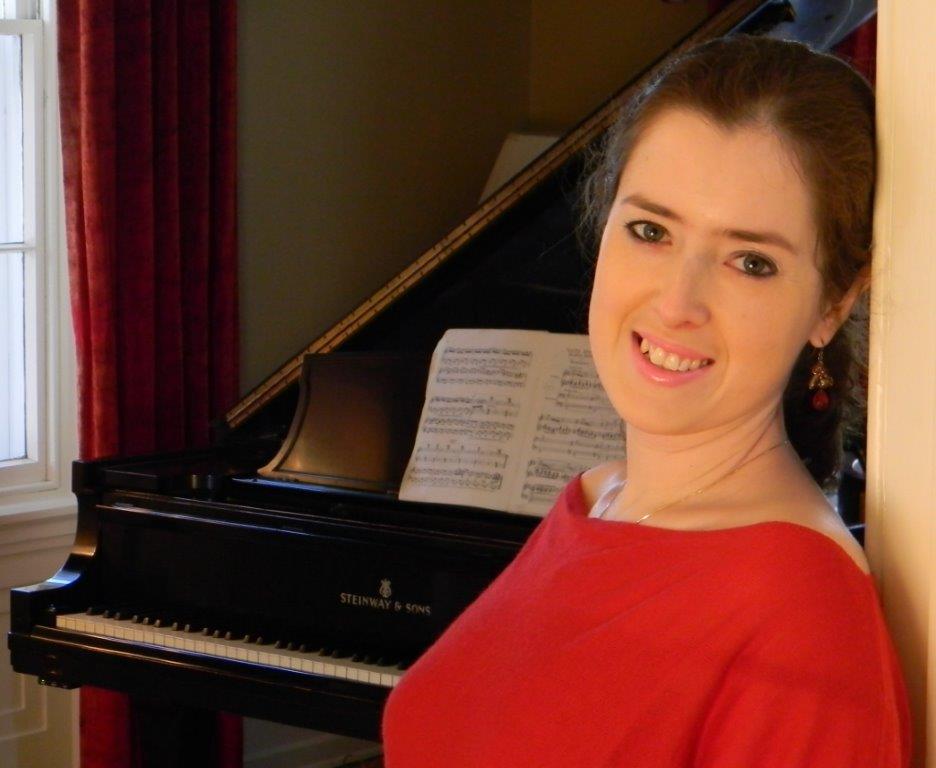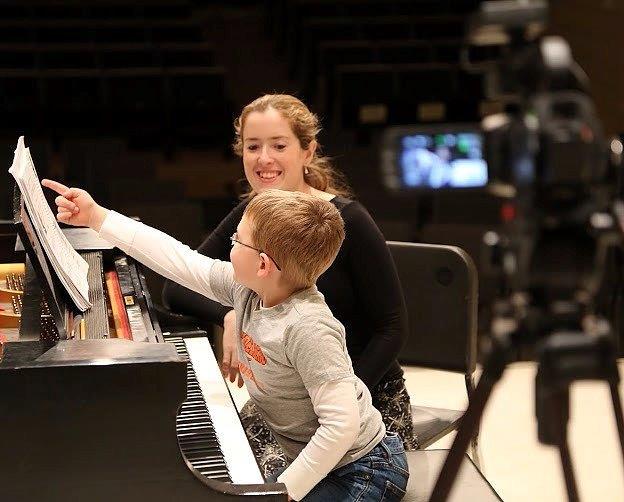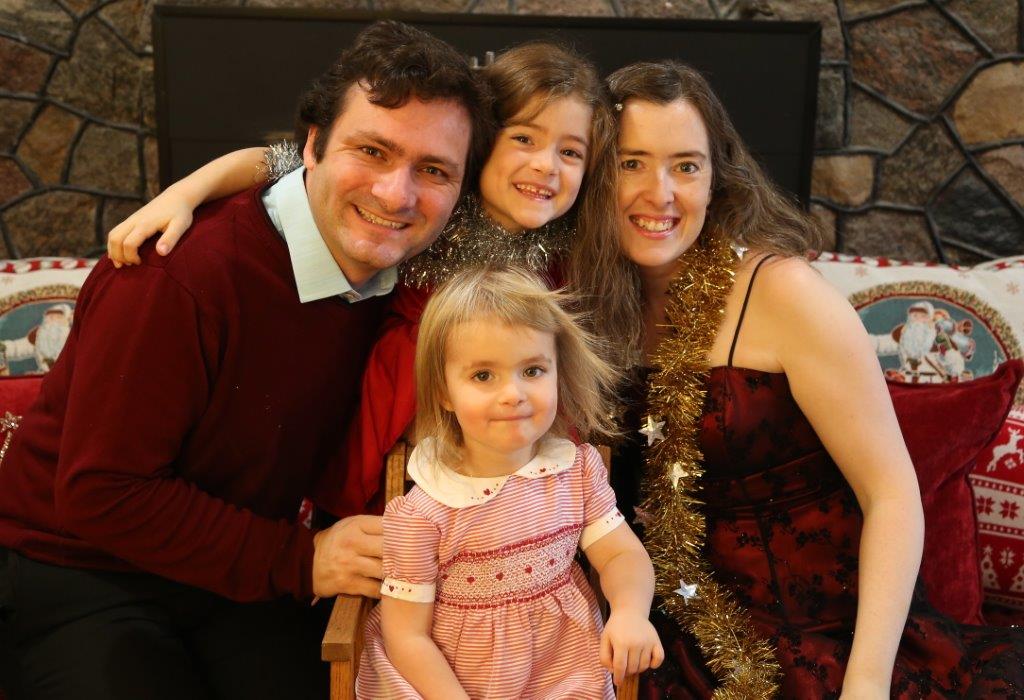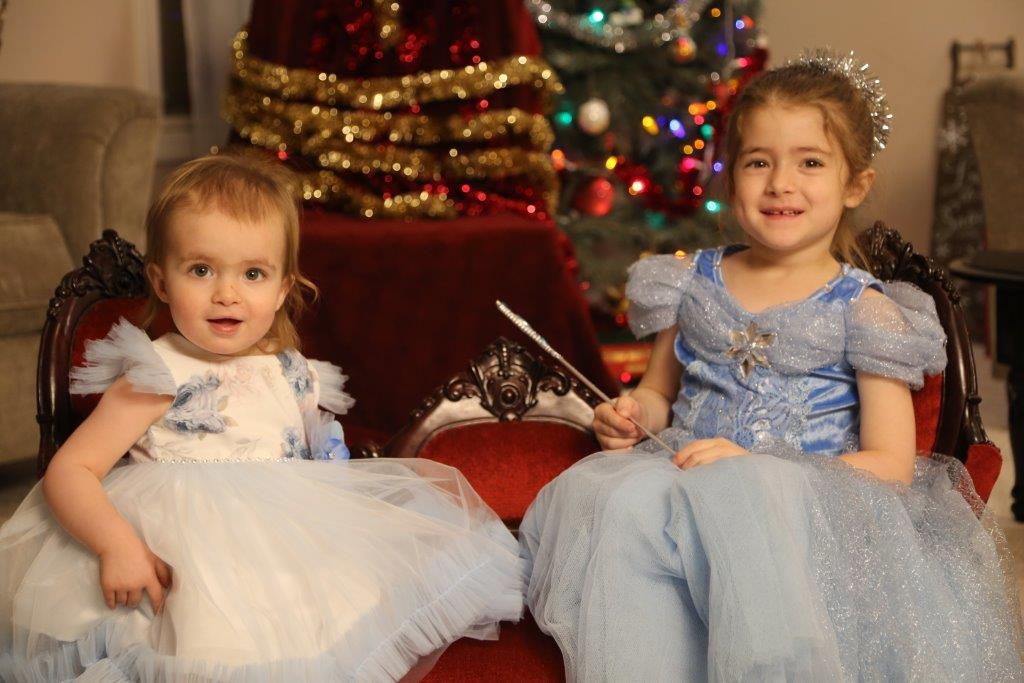
– How would you describe your profession?
I am a musician, a pianist. I love music and piano. I also see a tremendous value in education and raising the next generation of great piano teachers. After graduating with my doctorate degree from the University of Southern California, I have split my time between performing and educating, teaching, fostering my college level students to become great teachers.
Being a Piano Pedagogy professor at the University of Texas at Austin is an exciting opportunity for me.
My work includes many different puzzle pieces but perhaps my favorite is to guide and teach excellent pianists how to teach piano to students from the very first year into the advanced stages. That is where my job comes in, to open doors for novice teachers into the piano pedagogy world.
– How did you choose your career?
This was something that I knew I would be since the age of five. That being said I did have a moment in my life, when upon entering the Isreali army, I had to stop playing and thoughts about quitting were entertained. It was a very trying period in my life, it was the first time that I was not able to touch the piano for many months. Progressively the world became void of joy and color, as if I was living in a black and white movie. I was too young to understand that it was because I was missing my soulmate, my piano. After about ten months a friend suggested to contact a piano teacher, Yanina Kudlik, and get back to playing. That was a pivotal point, that was the point that I realized that I simply cannot do anything else. That my happiness is depending on my piano.
– What motivates you at work?
Perhaps the strongest motivator at work are my students, college students but also the little children that we have in Piano Project at UT. Seeing how children respond to music and with what excitement they learn is incredibly rewarding.
Another consistent motivator remains my piano and music, unfortunately, especially due to the pandemic, I am unable to practice as much. Planning everything online takes a lot of effort and my daughters cannot quite understand that when mama has to practice she cannot also provide snacks, milk, and read a book.
Lastly, listening and learning, the endless pool of available information that we have today is astonishing. On YouTube, for example, you can listen to the top of the world musicians, lectures, and masterclasses. It is really phenomenal.

– Which of your projects are the most memorable, why?
There are two projects that stand out. The first one, Centennial Celebration of the Rite of Spring. It was a collaboration with a fantastic pianist Gerald Evans one of our pieces was The Rite of Spring by Igor Stravinsky. Performing this piece on two pianos was an unbelievable experience. I was captivated with the incredible story line, harmonic language and obsessive rhythmic drive. It was really a life changing experience. Every rehearsal was an unbelievable moment in time and I thank Dr. Gerald Evans for that opportunity. The performance is available on YouTube.
Second project was the Practical Piano Pedagogy conference that I organized at Heidelberg University. That event included a wonderful guest presenter, a master teacher Irina Gorin, an amazing guest pianist Alexander Malikov, and several pedagogical lecture by me. Getting to know other piano teachers, organizing it with my college students, and participating in the workshop was a great experience. Till this day, years later, I keep in touch with people that I met during this workshop.
Piano Project is a new project for me that I inherited from a phenomenal musician and pedagogy Professor Sophia Gilmson. I am endlessly grateful for her dedication to the field of piano pedagogy and am very excited to continue the wonderful work that Professor Gilmson has started.
– Do you participate in professional groups? If so, which ones?
I am a part of the Music Teachers Association where I have served on the board for many years; most recently as a President Elect for the state of Ohio.
I also belong to College Music Society and subscribe to The Piano Magazine, American Music Teacher Magazine, and International Piano Magazine.

– Please tell us about your family
My parents and I immigrated to Israel from Belarus in 1990. I came to United States in 2002 to study on a full scholarship and met the love of my life, Nathan Cutietta. On my husband’s side I gained two wonderful sisters and a very supportive mother and father-in-law whom all reside in Montana and California. Nathan has been my rock, motivator, and equilibrium in the past ten years, I feel very fortunate and grateful. We have two precious daughters, Emma Sophia, 6 y.o. and Anastasia Natalia 2 y.o., who are the center of our universe.

– How has COVID-19 impacted your work and life?
We have been more fortunate than many other families. We are healthy, we have our jobs, we are able to support ourselves. That being said, it still has been a challenging time. Working full time with two little children at home for a big portion of the pandemic is not an easy undertaking. Having a new job during the pandemic requires a lot of planning and extra time to successfully teach in an online setting. It does not take less time but much more.
On the other hand, the pandemic definitely made us to reevaluate what is important and what we should be grateful for. Our incredible children, families, friends – we miss them all so much. The ability to hear live music, freedom to go anywhere without the fear of infection, our health, the one-on-one times with other humans. We took so much of it for granted. Hitting the reset button and realizing how much we have, is an incredible opportunity for us to come out as stronger people after the pandemic.
– What do you do besides work? What are your hobbies and interests?
It is an interesting question, and it is difficult to answer because my hobby and professional life are very much in tune with each other. I love reading through new pieces, unknown composers, or new children repertoire that I can implement in my teaching.
Reading and listening to audio books is also one of my favorites. That being said, outside of work, most of my time is spent with my daughters reading, playing, coloring, doing puzzles and yes, learning piano and Russian.
– What are your favorite books and films?
We do not watch much television at home. Books. From the musical point, my mind immediately goes to the autobiography of a famous Russian singer Galina Vishnevskaya, the name of the book is GALINA, and I highly recommend it.
Additionally, I adore Master and Margarita by Bulgakov. In the recent month two books made an impact on me, both plots happen during the time of world war II, which really puts things in perspective. The books are The Nightingale by Kristin Hannah and All the Light We Cannot See by Anthony Doerr. Inevitably I read a lot of children literature at the moment. Emma and I read and reread a very beautiful book Mio my Mio by one of my favorite children authors Astrid Lindgren.
– Do you think Austin will benefit from having a Russian Cultural Center? If so, how would you like to participate?
Yes, yes, and yes! While my responses here are in English, we do raise our children with a strong Russian/Jewish/American identities. Emma is fluent in both languages and absolutely loves the Russian culture, Anastasia is following her sisters’ steps. I know that Austin has a large Russian population of young families who raise their children in similar ways to ours. Having this center would contribute to strengthening our identity and helping us preserve our roots, while providing our children the opportunity to experience our culture. For the older generation it is crucial and perhaps even more important to have the emotional support and feel connected to a society that is new but yet familiar to them.
Participating in any kind of educational and cultural programs with my girls would be perhaps my first priority.
– What would you like to wish the Russian-speaking residents of Austin and Texas?
In these difficult times of Covid–19 we all should concentrate on the positive things in our lives. Everyone in the world have been affected by this horrible virus. If not directly, definitely in many in-direct ways. What I would like to wish the Russian-speaking community of Austin is similar to anyone else I know: health, peace, and optimism.
Contact information:
Margarita Denenburg
Website: https://www.denenburgmargarita.com/
E-mail: m.denenburg@utexas.edu
Interviewed by: Dmitri Ovcharenko
Edited by: Olga Adler
Published by: Russian Cultural Center
